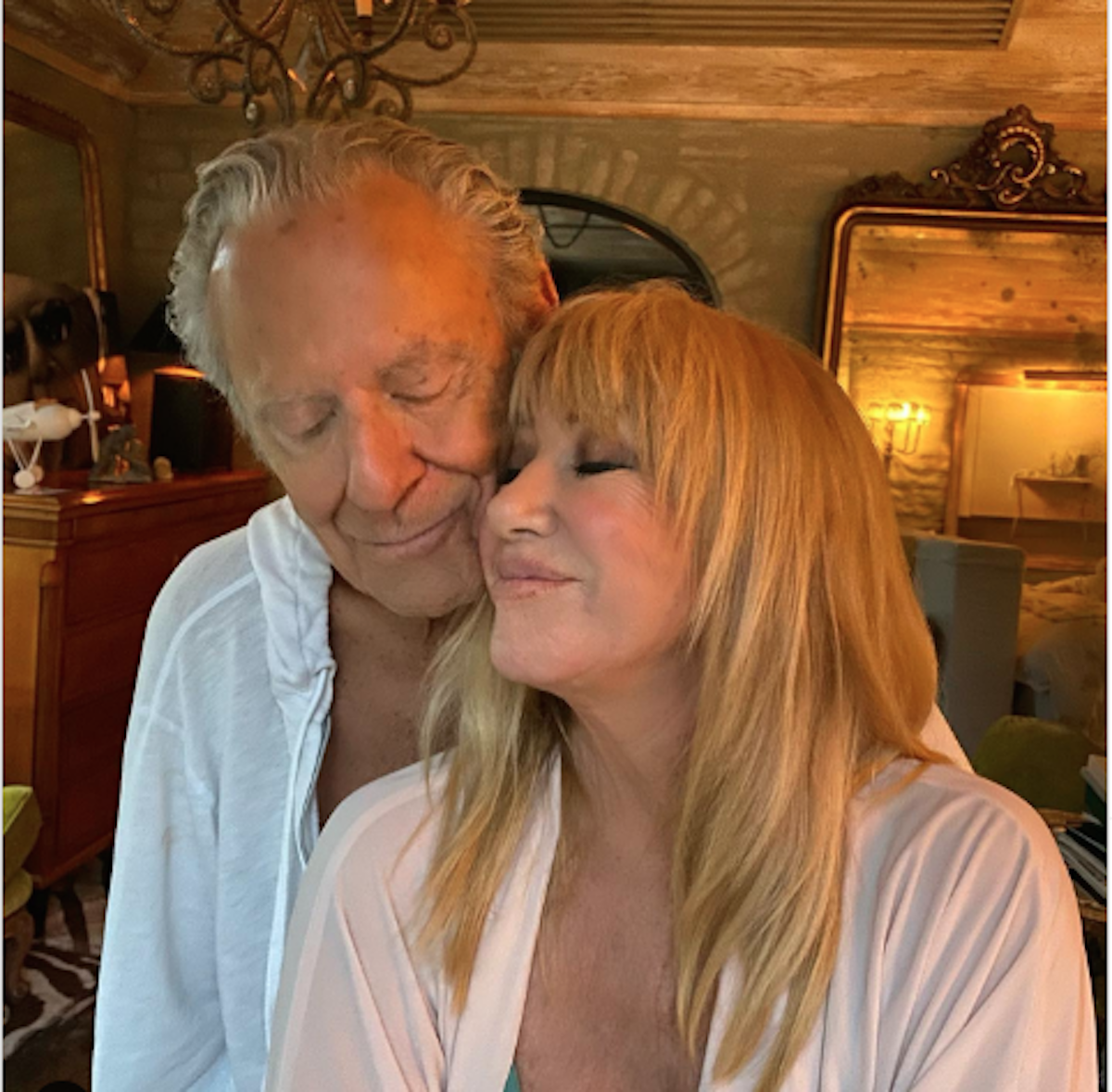Suzanne Somers' Cancer Battles
- Actress Suzanne Somers, known for her role as Chrissy Snow 70's sitcom “Three's Company,” battled skin cancer in her 30s and twenty years later faced breast cancer in her 50s. She has been battling a recurrence of breast cancer for more than two decades.
- It’s known that her breast cancer was stage 2, so it was caught relatively early, and since then, she has bravely shared her battle with her fans, and also sparking some controversy in regard to her treatment decisions.
- Somers decided she didn't want to undergo chemotherapy treatments, and instead, underwent a lumpectomy, which is when part of your breast that's affected by cancer gets surgically removed. The procedure was followed by radiation treatments.
- She then opted against her doctor’s advice, which was to undergo a traditional mastectomy, a surgery to remove the breast, and instead became the first woman in the United States to legally undergo a process called “cell-assisted lipotransfer.”
- Somers says that the treatment route a person takes is their own choice. But as SurvivorNet's experts often caution, alternative medicine is never a replacement for traditional medicine that's backed by science. And Somers has said that treatment is a personal decision that should be discussed with a doctor.
As Somers combats disease with optimism, we can’t help but think back to when Somers had an issue with her “Three’s Company” contract negotiation, a dispute that led the actress to cut off communication between her and her co-star’s, DeWitt and Ritter.
Read More
Despite being fired, Somers was to finish her acting duties in season five but banned from talking to her castmates.
It wasn’t until more than 30 years later, in February 2012, that Somers spoke with DeWitt on a TV talk show called “Breaking Through,” where Somers said, “I always saw this as a business venture … in a group of serious actors. I probably pissed you all off.”
During their “Breaking Through” appearance, DeWitt noted that whenever people questioned her on what exactly went on between her and Somers, she would “relentlessly” say, “It is my opinion that the only reason Three's Company is worth remembering is that it created an opportunity for all of us to laugh together, to celebrate joy. It's a profound gift.”
Battling Breast Cancer Again
Somers opened up about her the return of her breast cancer an a recent Instagram post, writing, “Since I have been taking time off from work, many of you have asked for more details about my health. As you know, I had breast cancer two decades ago, and every now and then it pops up again, and I continue to bat it down.
“I have used the best alternative and conventional treatments to combat it. This is not new territory for me. I know how to put on my battle gear and I'm a fighter.”

RELATED: “Three’s Company” Star Suzanne Somers Says She's Putting On Her Battle Gear to Fight
Somers continued, pointing out how her husband of over 45 years, Alan Hamel, has been by her side “every step of the way.”
“I can't even explain how much he has done for me. If it's even possible, we are even closer than ever. My incredible family has been so supportive, and have helped so much by keeping the business running so you can still have access to all the wonderful products,” she concluded.
“Thank you for the continued love and support. It's only about who you love and who loves you – and I love you!”
More On Alternative Therapies
- Misleading Study Says CBD Oil Could Lead to Tumor Regression in Cancer Patients; Here's Why Alternative Therapies Are so Dangerous
- 1 in 5 Cancer Survivors Believe Taking Supplements Will Prevent Recurrence; Don’t Rely on Alternative Medicine
- Nearly 40% of Americans Believe Alternative Medicine Can Cure Cancer
In a statement made to Entertainment Tonight, Somers embodied incredible strength as she works to fight off cancer yet again.
“Like any cancer patient, when you get that dreaded, ‘It's back,’ you get a pit in your stomach. Then I put on my battle gear and go to war,” she told the news outlet. “This is familiar battleground for me, and I'm very tough.”
Survivor Giuliana Rancic's Advice for Those Living With Cancer
She added, “My cancer is a disease that affected my whole family and once it hit me in my 20's, Alan and I got even closer and every moment of every day was precious. We have not spent even one day apart in over 42 years. That's the big upside of my cancer.
“My son refers to our relationship as functionally co-dependent. And my incredible family has been unbelievably supportive every step of the way.”
Suzanne Somer’s Cancer Battles
Somers fought skin cancer in her 30s, and twenty years later in her 50s, she was diagnosed with breast cancer. It’s known that her breast cancer was stage 2, so it was caught relatively early, and since then, she has bravely shared her battle with her fans, and also sparking some controversy in regard to her treatment decisions.
RELATED: Risk Factors for Breast Cancer
Somers decided she didn't want to undergo chemotherapy treatments, and instead, underwent a lumpectomy, which is when part of your breast that's affected by cancer gets surgically removed. The procedure was followed by radiation treatments.
Dr. Sarah Cate Explains the Difference Between Lumpectomy & Mastectomy
She then opted against her doctor’s advice, which was to undergo a traditional mastectomy, a surgery to remove the breast, and instead found a doctor at the University of Tokyo in Japan who was leading a clinical trial on using stem cells to regenerate the breast.
The author, singer, and businesswoman, received approval for the procedure from the U.S. Food and Drug Administration, and ultimately became the first woman in the United States to legally undergo a process called “cell-assisted lipotransfer.” And despite people's opinions, Somers still strongly stands by her decision.
RELATED: Alternative Therapies: Don't Believe Everything You Read on the Internet
“What I wanted to do was less controversial than implants,” Somers told SurvivorNet in a previous interview. “I was restoring my breast exactly as it was prior to the surgery.”
Somers says that the treatment route a person takes is their own choice. But as SurvivorNet's experts often caution, alternative medicine is never a replacement for traditional medicine that's backed by science. And Somers has said that treatment is a personal decision that should be discussed with a doctor.
How to Understand What's Actually Valid Health Information Online
Knowing that Somers uses alternative therapy to combat her breast cancer, it’s important to note that patients who rely on unproven methods outside of the conventional medical realm often end up with fatal consequences; a study released by researchers at Yale University in 2017 revealed that patients with cancer who only use alternative treatments are twice as likely to die from the disease.
How can you know whether the information you read online, especially medical information, is reliable? There are a few ways:
The National Institutes of Health recommends that, as a rule, the sites you get medical information from should be sponsored by federal government agencies. Knowing who or what sponsors and hosts the website you're reading from is important, too.
- .gov are government agencies
- .edu identifies an educational institution
- .org usually identifies nonprofit organizations
- .com identifies commercial website
Questions To Ask When Seeking Out Reliable Medical Info Online:
- Who wrote the information?
- Who reviewed it?
- When was the information written?
- What is the purpose of this website?
Dr. Jason Westin, leader of the diffuse large B-cell lymphoma research team at MD Anderson Cancer Center in the Department of Lymphoma and Myeloma, previously told SurvivorNet: “Make sure if you're finding information on the internet about something that sounds too good to be true, talk to your doctor about it.”
Alternative Therapies: Don't Believe Everything You Read on the Internet
“Alternative therapies” refer to treatments that people may choose in place of conventional, scientifically backed medicine. These alternative methods can range from mind-body approaches and diet and nutrition choices to supplements, healing crystals, Chinese medicine and Ayurvedic medicine. They're touted all over the internet, and they often sound too good to be true. And that's because they probably are, Dr. Westin says.
It's for a good reason that these therapies aren't used at comprehensive cancer centers: they haven't proven themselves effective in clinical trials rigorous studies that test treatments in the population of people they're intended to treat. Clinical trials test new treatments for safety and efficacy; every drug or treatment approved for widespread use by the U.S. Food and Drug Administration has to have gone through multiple phases of clinical trials.
It's also important to note that the validity of scientific data is determined by whether results can be repeated by other researchers, the sample size of the study and the academic credentials of the researchers and journal where the information is published.
Sometimes, the therapies or supplements you read about on the internet can be OK and maybe even beneficial if they're used with conventional medicine, not in its place. These options make up "complementary medicine," which, when used in tandem with conventional medicine, is called "integrative medicine.”
The Difference Between Integrative Medicine and Alternative Medicine
Many doctors believe in integrative medicine, so long as they remain in the loop and give their patients the go-ahead before combining anything new with their treatment. But the majority of doctors tend to be in agreement about the fact that these options should never replace conventional treatment.
Even if you aren't planning on foregoing the treatment that your doctor prescribes as you try out something you read online, it's absolutely vital that you talk to your doctor first. They are the only ones who will be able to tell you whether that "cancer-curing" supplement is going to interact negatively with your actual treatment. It may, for instance, cause the treatment to be less effective. Or it may wind up being harmful, or cause debilitating side effects.
Contributing: SurvivorNet Staff
Learn more about SurvivorNet's rigorous medical review process.


